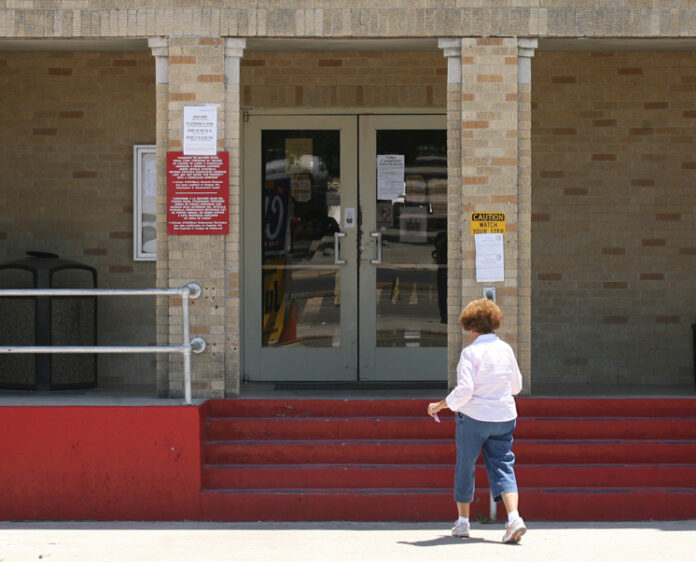A temporary restraining order was partially granted against Starr County’s electioneering regulations.
U.S. District Judge Randy Crane issued a ruling Wednesday which granted part of the TRO application filed by the Mexican American Legal Defense and Educational Fund, or MALDEF, and Texas Civil Rights Project.
The decision allows the county to continue banning electioneering in parking areas under the county’s building and property use policy, adopted Feb. 12, but temporarily blocks the section of the policy which requires a permit to use other county property.
Their application and lawsuit, filed on behalf of a Starr County candidate and the Starr County Republican chair, argued that the policy violated First Amendment rights.
The lawsuit initially focused on an electioneering ban adopted in January, which prohibited electioneering on all county property. However, during a hearing in federal court Monday, the ban was deemed unenforceable and focus quickly shifted to the property use policy. That policy essentially overrode the ban by allowing the use of county property, not designated parking zones, with a county-issued permit.
While prohibiting electioneering in parking lots was deemed reasonable in the judge’s decision Wednesday, due to the fact that their primary purpose is to provide parking, regulation of other common spaces such as sidewalks raised concerns that “use” of those areas included passive political speech such as wearing a political T-shirt.
The county’s arguments for regulating parking areas, the opinion stated, “do not justify prohibitions of electioneering in common areas — to include, apparently, the prohibition of passive speech in public fora — past the 100-foot buffer zone.” That buffer zone is mandated by the Texas Election Code which prohibits electioneering within 100 feet of the door to a polling location.
Representatives for MALDEF and TCRP issued a news release Wednesday hailing the decision as a victory for free speech rights.
“This is a victory for common sense and the right to express political views free from government overreach,” stated Celina Moreno, interim Southwest Regional Counsel of MALDEF. “The federal court has preserved First Amendment rights by blocking the ban on speech in county-owned common areas.”
Efrén Olivares, racial and economic justice director with the Texas Civil Rights Project, said the decision restored equal opportunity to participate in the electoral process.
“When Starr County improperly tried to impose a blanket ban on electioneering, they also silenced Texas voices,” Olivares said in a statement. “We are thrilled to see the right to political speech restored to Starr County residents, regardless of their political affiliation.”
However, 229th District Attorney Omar Escobar, who had a role in crafting the policy and who testified on the county’s behalf during Monday’s hearing, said he didn’t believe the plaintiffs, MALDEF and TCRP, accomplished very much.
“What’s important here is that really the plaintiffs really didn’t get much from this ruling,” Escobar said late Wednesday. “Their entire argument has been about wanting to be allowed into parking zones, and the court did not allow that.”
The majority of the policy remains in effect, Escobar pointed out, but said the county would be revisiting the section that was blocked by the restraining order.
“We’ll be talking to counsel and we may be revising that one part of the policy just to define common areas and how those can be used,” Escobar said. “But essentially very little changes.”





